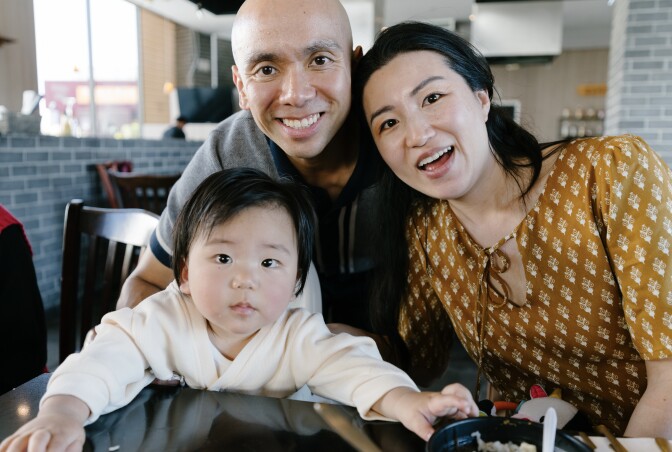Topline
For a second time, a would-be stem cell donor from the Philippines has had his visa application to enter the U.S. rejected. His cousin Arthur Yu, an L.A. resident, needs a stem cell transplant to fight off an aggressive blood cancer. Yu has already undergone four rounds of chemotherapy.
The backstory: Yu, a 41-year-old media strategist and new father from Miracle Mile, was diagnosed with a fatal blood disease — acute myeloid leukemia or A.M.L. — last March. A stem cell transplant would trigger new blood cells to grow and give him an 80% chance of a cure. Genetic testing showed a male cousin in the Philippines was his closest match, providing the best chance of a successful transplant.
What's stopping the transplant: The cousin’s request for a visa was rejected in late December. The reason given? The cousin hadn’t provided enough proof that he’d return to the Philippines after donating stem cells to Yu. The cousin appealed that decision earlier this week. But Yu says that appeal has been denied. The decision by the State Department came even after the office of Sen. Alex Padilla made a Congressional inquiry made on behalf of the cousin. The senator's office said Wednesday it has submitted a second inquiry.
Part of a bigger problem: Yu shares his plight with other patients from immigrant families whose ideal donors are in countries where nationals need visas to enter the U.S.
How can you help: Other suitable unrelated donors in the U.S. may be out there. To help blood cancer patients, you can become a stem cell or marrow donor by joining the NMDP (formerly known as the National Marrow Donor Program). Register here. You must be:
- Between the ages of 18 and 40.
- A resident of the United States or one of its territories or freely associated states.
- Able to meet certain medical guidelines.
Go deeper: LA Man Needs A Life-Saving Stem Cell Transplant — But His Donor Isn't Allowed Into The US









